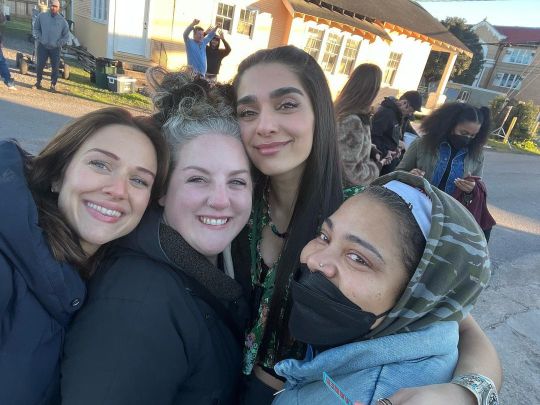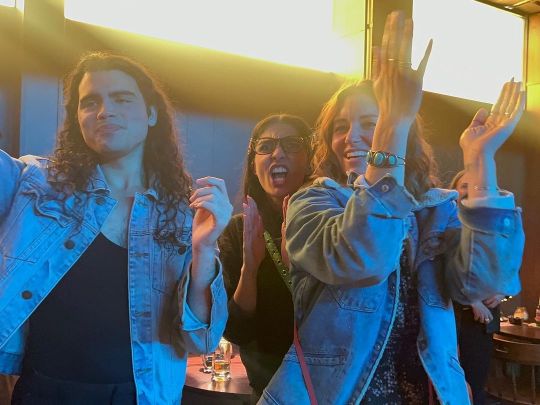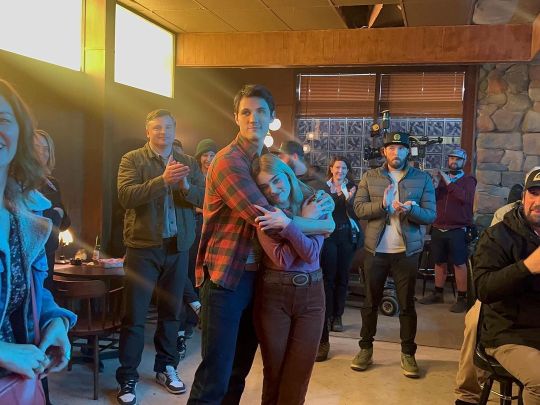Video
youtube
William Petersen singing ‘Take me out to the ball game’ (◡‿◡✿)
39 notes
·
View notes
Text
1 note
·
View note
Text
"It's much different. It kind of takes the crazy away, and it's an adult story, if that makes sense. There's a lot going on, but it's super poetic, it's super beautiful. It's not a repeat of the same show at all. The light in France is different than the light in America. The tone, the way people work is different over there. It's a very singular vision. It's a tunnel vision story, and things are happening right away. With The Walking Dead, there will be 15 cameras and 15 angles of me walking across the street. There, it's simplified."
Norman Reedus, Comicbook
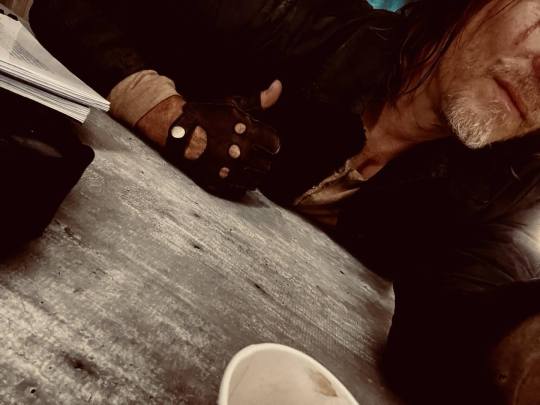
15 notes
·
View notes
Text
In a universe dominated by war it is easy to reduce Star Wars politics to the more obvious issues that plagued the GFFA. However, politics goes beyond the bigger picture, beyond war, laws and corruption. It was part of the everyday lives of every character of the franchise. And in the most ‘mundane’ side of politics lies one of the biggest enemies the Jedi Order had face: the status quo.
In the year 1000 BBY when the last (open) Sith war ended and the Republic was reformulated into what we saw during the Prequels, the greatest challenge of the Jedi Order began. With no more wars to fight, without enemies to defeat, the Jedi’s role within the galaxy shifted from warriors to diplomats. A hard transition for a group that had spent over 24000 years fighting for the Republic. In that context it’s understandable the narrative (and our) desire not to fault them for that happened next.
As they were put in a position they were utterly unprepared for, slowly, over a millennium, they lost sight of some pretty important issues that would later overwhelm them. The more obvious ones are related to their incapacity to navigate the politics of an overpopulated and corrupt Senate.
As warriors they faced political situations headfirst, as one would charge their opponent on the battlefield. They opted for the sword in situations where a scalpel would be the more appropriate tool. That somewhat naïve approach to politics not only left them vulnerable to manipulation, it also undermined any chance they had of acquiring political relevance within the Republic. To most, they were viewed as magical tools for the Republic’s interests, not independent political agents.
Their political mishaps made they vulnerable to attacks that eventually would culminate in their downfall, but it was the Order’s internal issues that cemented their inability to fight back.
The Jedi were not political animals and that’s usually used to explain why they failed to see Palpatine’s schemes for what they truly were. However, if the 1000 years between the Ruusan Reformation and the Phantom Menace set the stage for what saw of the relationship between the jedi Order and the Senate, the same period was also of great significance to the internal structure of the group.
In the year 1000 BBY, the same year the Republic reformulated the senate, restructured its territories, dissolved its military in an attempt to mitigate open armed conflicts, the Jedi Order began it’s tenure as diplomats. Considering how the last period of war had decimated the Jedi and almost ruined the Republic permanently, shifting their scarce resources to conflict resolutions was a smart decision…on paper. In practice, the Jedi’s new role left them vulnerable to the internal problems that would later serve as base for Palpatine’s rise to power.
Changing is hard and, more often than not, it breeds conflict. But what happens when structural (and cultural) change is followed by almost 900 years of peace? What happens when you no longer have an enemy to fight? When you no longer see reasons to change?
“The Jedi Order’s problem is Yoda. No being can wield that kind of power for centuries without becoming complacent at best or corrupt at worst. He has no idea that it’s overtaken him; he no longer sees all the little cumulative evils that the Republic tolerates and fosters, from slavery to endless wars, and he never asks, “Why are we not acting to stop this?” Live alongside corruption for too long, and you no longer notice the stench. The Jedi cannot help the slaves of Tatooine, but they can help the slavemasters.” The Clone Wars by Karen Traviss)
I know most fans dismiss Dooku’s views on the Jedi Order’s internal shortcomings because he’s a bad guy and we’ve been trained to ignore anything that could make our heroes as anything less them utterly…heroic. But what if he’s right? Or, at least, what if he’s right about the dangers of complacency?
Perhaps the core of the issue here is not Yoda himself but what he represents. And in this case the character represents that “enemy’ I’ve mentioned before: the status quo.
Yoda remained in charge of the Jedi order for over 900 years. Almost a millennium of relative peace, almost of a millennium in where no real, lasting change happened within the Order. And that, as Yoda himself would later admit, was the reason beyond their inability to adapt to a new galaxy and to a new form of warfare.
“My failure, this was. Failed the Jedi, I did.” He spoke to the Force. And the Force answered him. Do not blame yourself, my old friend. As it sometimes had these past thirteen years, when the Force spoke to him, it spoke in the voice of Qui-Gon Jinn.
“Too old I was,” Yoda said. “Too rigid. Too arrogant to see that the old way is not the only way. These Jedi, I trained to become the Jedi who had trained me, long centuries ago—but those ancient Jedi, of a different time they were. Changed, has the galaxy. Changed, the Order did not—because let it change, I did not.” [Matthew Stover. Revenge of the Sith]
In the words of Yoda, the old way is not the only way. That simple truth shaped the Order into an organization that would later crumble in the face of Palpatine’s political maneuvers. Their inability to keep up with the natural changes of the GFFA represents the failure of adaptation and that failure is directly related to how time passed for them.
The years the GFFA experienced were the same ones the Order did, however where things naturally changed for the rest Republic – time changed families, leaders, governments, habits, views, etc – it didn’t change the Jedi order’s because for 900 years the same person led the Order and guided its habits, views and actions.
The few changes the Jedi order experienced in that millennia were reactionary. An external situation forced them to change out of necessity or survival. But no real attempt was made to debate and reorganize the internal structure of the group. There was no movement to even analyses if change was necessary. They became adept of the “if it’s not broken, don’t fix it” proverb and that would cost them everything.
[The Jedi] sort of persuade people into doing the right thing but their job really isn’t to go around fighting people yet there are now used as generals and they are fighting a war and they are doing something they really weren’t meant to do. They are being corrupted by this war, by being forced to be generals instead of peacemakers. – George Lucas for E! Behind the Scenes - Star Wars Episode III Revenge of the Sith
By failing to notice the war (and the galaxy) had changed, they allowed themselves to be easily manipulated by Palpatine. In their desperate attempt to protect the galaxy they made themselves susceptible to outside forces, to corruption, to the dangers of blind certainty.
The story being told in ‘Star Wars’ is a classic one. Every few hundred years, the story is retold because we have a tendency to do the same things over and over again. Power corrupts, and when you’re in charge, you start doing things that you think are right, but they’re actually not. – George Lucas in 2005
The Jedi won the war, the one they believed would be the last one, and so they fell into a place of comfortable complacency. Instead of occupying the role of active agents of change within the galaxy, they passively allowed others to conduct them into a role they were unprepared for.
Passivity allied with a lack of self-analysis is dangerous, especially for those in leadership positions. It took Yoda 900 years to realize and vocalize his fears about the failings of the Jedi Order.
If he had been less passive about everything he witnessed in his time as their leader, maybe they would’ve been more prepared for the Palaptine’s schemes. Maybe, it would’ve been much harder for them to be push into corrupting their purpose by becoming agents of war instead of peace.
within the political context of the story, Yoda becomes the embodiment of the complacent leader who no longer leads, only reacts. He represents our leaders and institutions inability to adapt, to evolve, to be become active instruments of change within society. By maintaining the status quo, not only he failed the group he was supposed to be leading, he allowed their purpose to be corrupted.
The Jedi were, unquestionably, the heroes of the story. They are and always have been the good guys. But where most current heroes are presented to us as beyond reproach, George imbued them with a sense of humanity most fictional heroes lack: real vulnerability. The Jedi’s Achilles’ heels were not in some magical object that could rob them of their best qualities. Their vulnerability was far more nuanced, far more human. Their mistakes were the most human mistakes of all, the ones we all make sometimes in our daily lives even when we are trying to do good, perhaps, especially then.
They tried valiantly to protect the galaxy but their inability (or perhaps, unwillingness) to keep up with the social, cultural and political changes around them was what ultimately doomed them all.
And here George Lucas gives us an important lesson about time and the status quo: things changes and so should we. In episode VI, to the shock of us all, Darth Vader changed. After almost 20 years of cruelty and pain he changed his mind and his heart to save his son. And his ability to do so saved the galaxy.
Anakin’s more redeemable moment was also a moment of choice, a moment of change.
Maybe we can’t all walk around with laser swords or move rocks with our minds but we do have the possibility to be heroic in our daily lives. Nothing exemplifies that better than our willingness to act for the benefit of others. Our heroism lies in our ability to change, to defy the status quo, to act on our beliefs simply because we believe it’s the right thing to do.
When we choose to become active agents of change, when we choose to act to improve ourselves and the world around us, even if only for a little bit, we become heroes.
112 notes
·
View notes
Text



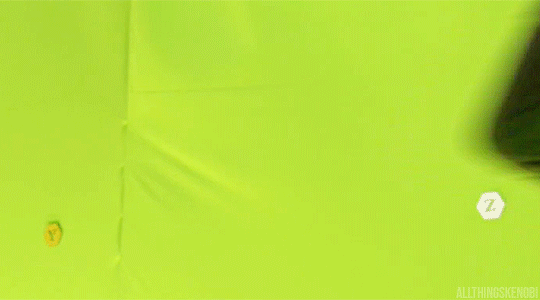




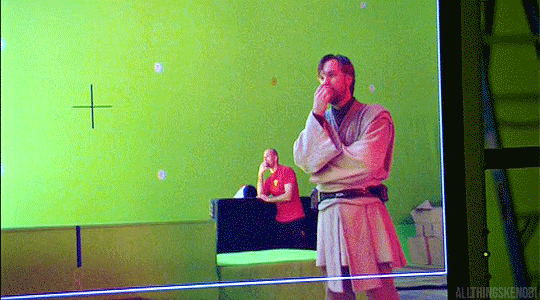
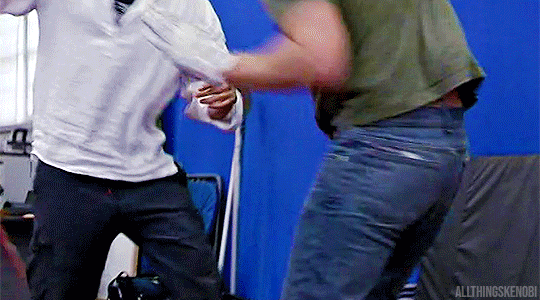
Within A Minute: The Making of Episode III Part II
Part I is here.
2K notes
·
View notes
Photo
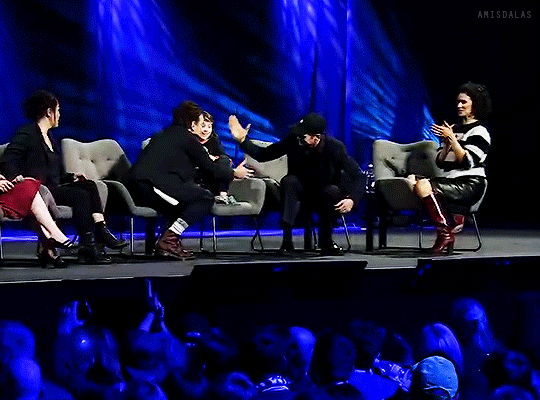

EWAN MCGREGOR & HAYDEN CHRISTENSEN
After the ‘Obi-Wan Kenobi’ Ep 6 duel and confrontation was played on screen during the ‘A Look Back at Obi-Wan Kenobi’ panel at Star Wars Celebration Europe 2023 | April 9, 2023
2K notes
·
View notes
Text
0 notes
Video
chelssbarberhairstylist: That’s a season Wrap on @thecwwinchesters
We love y’all so much!
Thank you @megdonnelly @drakerodger @nidakhurshid_ @jojoflei_ @misskajlich @demetria4real
Y’all are beautiful souls!!
@jensenackles
#thewinchesters
A big thank you for my team @iamallthingsmiranda @hollygmanders and all the Additionals who came to help us! Especially @chantellecalmes fotkaing in Limbo the clown!
@alifemadeup @everettbrannonmua @the_marvelous_mrs.mora @ashleykent.makeup @thestah
77 notes
·
View notes
Text
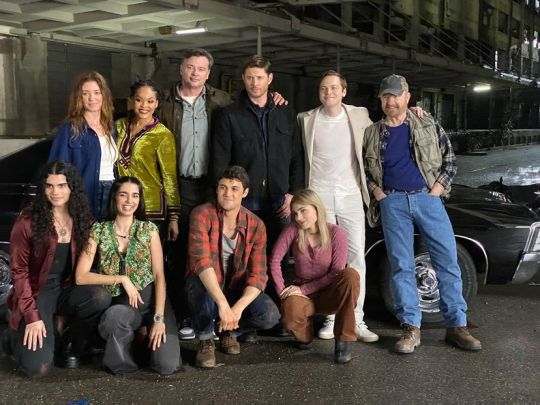
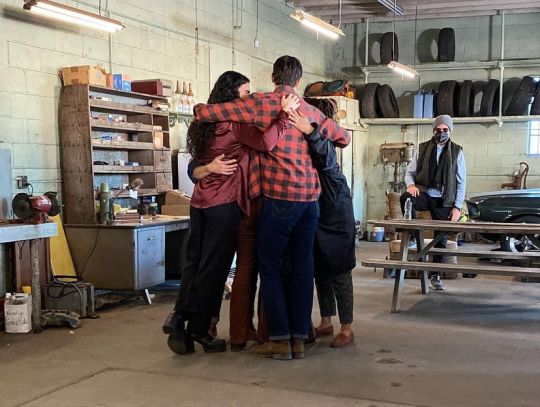
laurathenerd: Some bts from the season 1 finale of #thewinchesters @thecwwinchesters
12 notes
·
View notes
Text
Diversity and Inclusion on The Winchesters
Nida and Jojo Fleites were interviewed on Multicultural TV Talk by Juan Ayala to discuss the importance of on-screen representation for South Asian and non-binary people in Western media.
youtube
Excerpts from Nida and Jojo's interview:
"Growing up, I always wanted to see people who look like me, sound like me, and who I can relate to," Khurshid explains. "To be able to reciprocate and be that for young Pakistani, Indian and Middle Eastern women has been so lovely and something I don't take for granted or take lightly at all. It's been the biggest blessing doing it for this platform, having Supernatural on our backs, carrying that honor. And I feel so lucky to have [Jojo] by my side doing this. We all support each other so much and highlight what each one of us is different in, and those differences are what makes us feel more alike and safer."
"When it comes to Pakistani women, and non-binary people like myself, we've always been around, we've always existed, we just haven't been put closer to the forefront in stories until the past couple of years," Fleites says. "I'm very grateful that this team really celebrated our existence and took what we know and contributed it to our characters. It's been a wonderful collaboration and great process."
Source: Media Village
18 notes
·
View notes
Text
youtube
Nida and Jojo Fleites hosted an impromptu Instagram Live on March 15, 2023.
**Unfortunately, the beginning of the Live was not recorded. If anyone saved it, feel free to reach out!
8 notes
·
View notes

